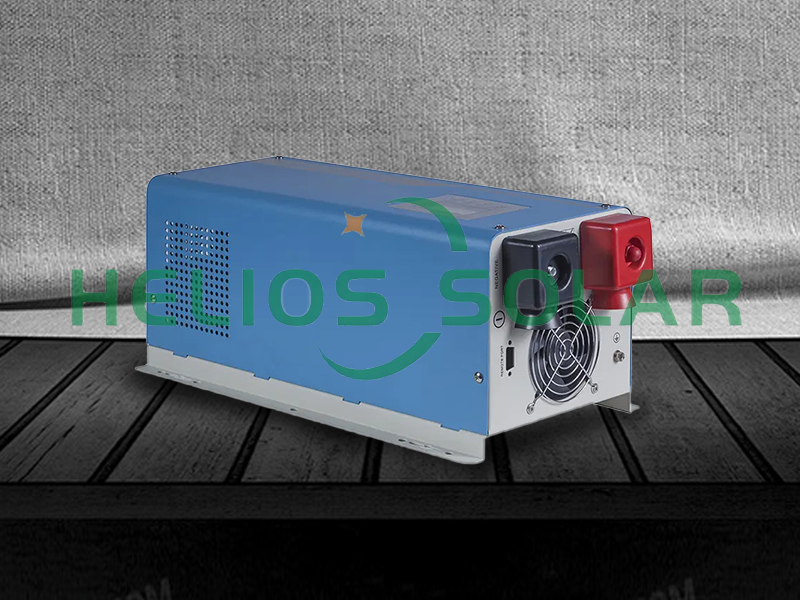Low frequency solar inverters are becoming more and more popular with homes and businesses due to their numerous advantages over high frequency solar inverters. While both types of inverters perform the same basic function of converting the direct current generated by solar panels into usable alternating current for home appliances, they differ significantly in design, performance and efficiency. In this article, we’ll explore the differences between high frequency and low frequency solar inverters, and why the latter should be praised for their superior quality.
About difference
First of all, let’s understand what is a high-frequency inverter and a low-frequency inverter. High-frequency inverters are designed to be smaller and lighter, making them more compact and portable. Low frequency inverters, on the other hand, are larger and heavier due to their construction using iron transformers. These transformers are known for their durability and ability to handle higher power loads without overheating. This is the main difference between the two types of inverters.
About performance
When it comes to performance, low frequency solar inverters dominate. These inverters are capable of handling high surge loads, making them suitable for powering heavy equipment and machinery. They are also known for their reliability in withstanding harsh environmental conditions such as extreme temperatures and humidity. This is especially important in areas with frequent power outages or unstable grid connections. The low-frequency inverter is durable and provides stable power to ensure an uninterrupted energy supply.
About efficiency
Efficiency is another area of strength for low frequency solar inverters. Due to the use of iron transformers, these inverters have lower core losses, which increases overall efficiency. This means that more of the direct current generated by the solar panels can be converted into usable alternating current, reducing energy waste. Conversely, high frequency inverters tend to have higher core losses, resulting in lower efficiency. This can have a significant impact on the overall energy output and financial savings of a solar system.
About voltage regulation system
Additionally, low frequency solar inverters provide better protection against power surges and fluctuations. They are equipped with a powerful voltage regulation system that stabilizes the AC output voltage and prevents any damage to the connected equipment. This makes them ideal for sensitive electronics that require a stable power supply. High frequency solar inverters, while inexpensive, are more prone to voltage variations and may not provide reliable protection for expensive electrical equipment.
Also, low frequency inverters are known for their compatibility with battery storage systems. Many homeowners and businesses are investing in energy storage solutions to maximize solar power and provide backup power during grid outages. Low-frequency inverters can be seamlessly integrated with these storage systems, ensuring efficient charging and discharging of batteries. This flexibility and adaptability make them a solid choice for those looking to expand their solar capacity in the future.
In conclusion
While high frequency inverters may be more compact and portable, low frequency inverters offer superior performance, efficiency, and protection. Their ability to handle high surge loads, reliability in extreme conditions, and improved efficiency make them a smart choice for residential and commercial solar systems. Additionally, compatibility with battery storage systems ensures a future-proof solution for those looking to expand their energy capabilities. With all these advantages, it is clear that low frequency solar inverters should be commended for their superior quality.
If you are interested in low frequency solar inverter, welcome to contact solar inverter manufacturer Radiance to read more.
Post time: Jul-26-2023


